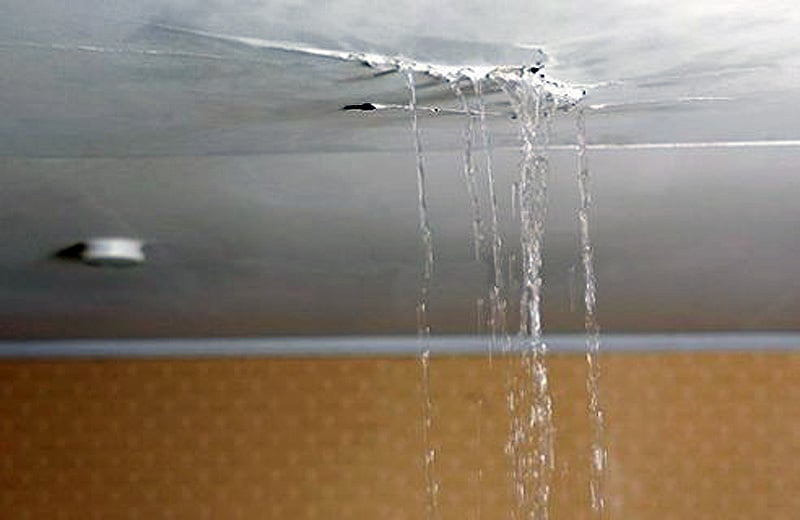Understanding the Six Most Common Causes of Water Leaks in Your Home
Understanding the Six Most Common Causes of Water Leaks in Your Home
Blog Article
Just about everyone is bound to have their personal idea in relation to Most Common Causes of Leaky Pipes.

Leakages not only create waste of water however can also create unnecessary damages to your home and also promote unwanted natural growth. By recognizing as well as looking for everyday scenarios that cause leakages, you can shield your house from future leaks as well as unnecessary damages.
Trespassing origins
Many water leakages start outside your house instead of inside it. If you discover a sudden reduction in water stress, say in your faucet, take time to go out and also examine your backyard. You might notice damp spots or sinkholes in your lawn, which might indicate that tree roots are getting into water lines triggering water to permeate out. You can have your plumber check for invasion, specifically if you have trees or bushes near your residential or commercial property.
Rusty water systems
This could be the reason of staining or warping on your water pipes. If our plumbing system is old, think about changing the pipelines given that they are at a greater threat of deterioration than the more recent versions.
Malfunctioning Pipeline Joints
The factor at which your pipelines attach is often the weakest link in the waterline. Pipe joints can weaken gradually, leading to water leakages. The bulk of pipe joints are not quickly visible. If you have noisy pipelines that make ticking or banging sounds, specifically when the warm water is activated, your pipe joints are possibly under a great deal of stress. It is a good idea to have your plumber check your system yearly.
Instant temperature changes.
Severe temperature level changes in our pipelines can create them to broaden and also acquire unexpectedly. This development as well as contraction might trigger cracks in the pipelines, particularly if the temperature level are below freezing. It would certainly be best if you kept an eye on just how your plumbing works. The existence of the previously stated scenarios frequently shows a high risk.
Poor Water Connectors
Sometimes, a leakage can be brought on by loose hose pipes as well as pipelines that supply your devices. Usually, moving is what causes the loosened water Links. You may find in the case of a cleaning maker, a hose may spring a leak because of drinking during the spin cycle. In case of a water links leak, you may see water running directly from the supply line or pools around your appliances.
Clogged Drains
Blocked drains pipes may be irritating and also inconveniencing, yet they can in some cases wind up creating an overflow resulting in rupture pipelines. Maintain removing any type of products that might go down your drains that could block them to stay clear of such inconveniences.
All the above are root causes of leaks yet not all water leaks result from plumbing leakages; some leakages might come from roofing leaks. All leakages need to be fixed right away to stay clear of water damages.
Leaks not only trigger waste of water but can also cause unnecessary damage to your house as well as advertise undesirable natural development. By comprehending as well as looking for daily situations that trigger leaks, you can shield your residence from future leaks as well as unnecessary damage. Today, we will certainly look at 6 leak causes that may be causing your pipes to leak.
At times, a leakage can be caused by loosened hose pipes as well as pipelines that provide your devices. In instance of a water connections leak, you may notice water running directly from the supply line or pools around your home appliances.
How To Check For Water Leak In Your Home
How To Check for Leaks
The average household's leaks can account for nearly 10,000 gallons of water wasted every year and ten percent of homes have leaks that waste 90 gallons or more per day. Common types of leaks found in the home are worn toilet flappers, dripping faucets, and other leaking valves. These types of leaks are often easy to fix, requiring only a few tools and hardware that can pay for themselves in water savings. Fixing easily corrected household water leaks can save homeowners about 10 percent on their water bills.
To check for leaks in your home, you first need to determine whether you're wasting water and then identify the source of the leak. Here are some tips for finding leaks:
Take a look at your water usage during a colder month, such as January or February. If a family of four exceeds 12,000 gallons per month, there are serious leaks.
Check your water meter before and after a two-hour period when no water is being used. If the meter changes at all, you probably have a leak.
Identify toilet leaks by placing a drop of food coloring in the toilet tank. If any color shows up in the bowl after 10 minutes, you have a leak. (Be sure to flush immediately after the experiment to avoid staining the tank.)
Examine faucet gaskets and pipe fittings for any water on the outside of the pipe to check for surface leaks.
Undetected water leaks can happen without the home or business owner even realizing. If you suspect a water leak, but not able to find the source. It is time to contact a professional water leak detection service, The Leak Doctor.
How To Find a Water Leak In Your Home
https://www.leakdoctor.com/blog/How-To-Check-For-Water-Leak-In-Your-Home_AE197.html

I was brought to that editorial on How to Find Water Leaks through an associate on a different web page. Sharing is nice. Helping others is fun. Thanks a bunch for your time. Come back soon.
Click Here Report this page